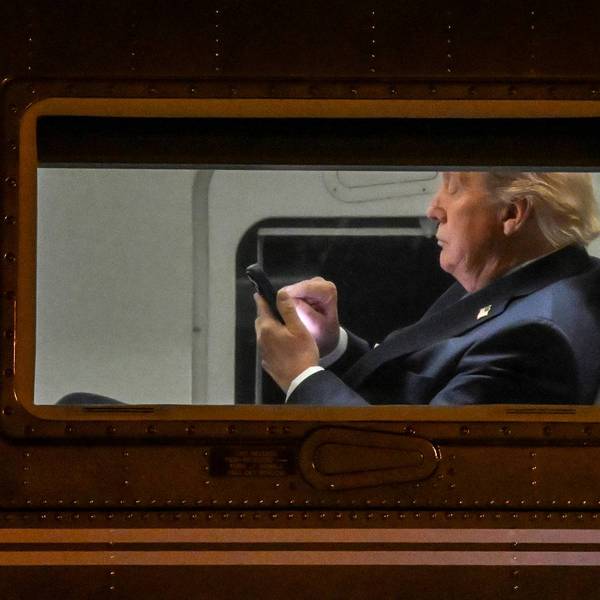Forty-six Senate Democrats are calling on President Donald Trump to "tell us whose side he's really on" when it comes to internet privacy, as a bill that would gut such privacy awaits his signature.
Republicans in the House and Senate voted last month to repeal the Federal Communications Commission's (FCC) privacy provision, which required that telecommunication companies such as Comcast, AT&T, and Verizon get users' permission before collecting or selling sensitive data. Widespread outrage surrounded the votes.
The White House said last week that Trump will sign the bill, but there is no indication of when a signing ceremony might take place--or whether the signing will occur in public or behind closed doors.
Meanwhile, Democrats are urging Trump to veto, rather than approve, the legislation. "Reversing these landmark privacy protections would be the antithesis of a pro-consumer administration," they wrote in a letter sent late last week. "Consumers deserve the right to make their own decisions about access, use, and sale of their personal, sensitive internet data by their broadband provider."
Senate Minority Leader Chuck Schumer (D-N.Y.) reiterated the call on Sunday. As NBC News reported:
The senator called the bill "a test" of whether Trump would side with consumers or big business.
"He campaigned on behalf of the average person, well, this is a test--will he side with the average person?" Schumer said of Trump, adding, "I hope so."
Government rules that require the president to sign a bill within 10 days (excluding Sundays) of it being sent to his desk; in the case of the internet privacy legislation, Trump's deadline is this Saturday.
Elected officials are not the only ones calling on Trump to reject the universally unwanted corporate giveaway. "President Trump now has the opportunity to veto this resolution and show he is not just a president for CEOs but for all Americans," American Civil Liberties Union (ACLU) legislative counsel Neema Singh Guliani said last week. "Trump should use his power to protect everyone's right to privacy."
Perhaps even more influentially, Trump supporters online have also been slinging criticism and calling for a veto.
If Trump were to veto the bill, "it would require a two-thirds vote in both houses of Congress to override, a margin significantly higher than the bill's support for passage," as noted by Ohio's Ironton Tribune.



